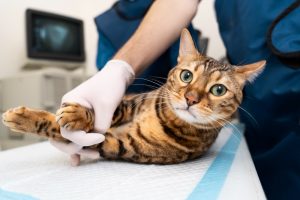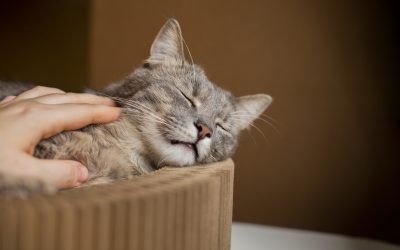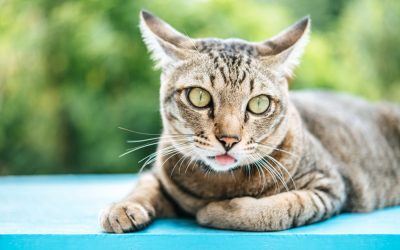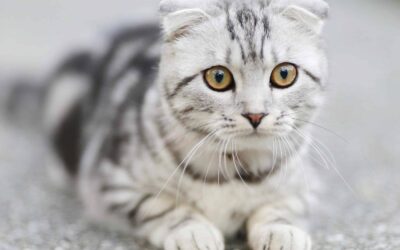Why Does My Cat’s Heart Beat So Fast?

Cats are captivating creatures—full of mystery, elegance, and a little bit of sass. As cat owners, we want to keep our feline friends happy and healthy, and one key way to do that is by understanding their biological rhythms—especially their heart rate. Knowing what’s normal and what’s not can help you catch potential health issues early and ensure your cat stays purring for years to come.
Why Your Cat’s Heart Rate Matters
Your cat’s heart is its powerhouse, pumping oxygen and nutrients throughout its body to keep it energized and playful. A strong, steady heartbeat is crucial for overall well-being, and keeping an eye on heart health can help prevent unexpected issues. Many pet owners don’t think about heart health until a problem arises, but early detection can make all the difference.
Regular vet check-ups are key, but it also helps to know what’s normal for your cat so you can spot any changes. The more in tune you are with your cat’s health, the better you’ll be at catching signs that might need professional attention.
What’s a Normal Heart Rate for Cats?
A cat’s heart beats much faster than a human’s. While humans typically have a heart rate of 60 to 100 beats per minute (bpm), cats fall into a much higher range—usually between 140 and 220 bpm. Several factors, such as age, activity level, and stress, can affect this range. Kittens, for example, have even faster heart rates because of their boundless energy and tiny size.
You can check your cat’s heart rate at home by feeling for their pulse. Just place your fingers on the inside of their thigh, near the groin area where the femoral artery runs. Count the beats for 15 seconds and multiply by four to get their bpm. If the number seems off, it might be time for a vet visit.
What Affects Your Cat’s Heart Rate?
Several factors can influence your cat’s heart rate, and understanding them will help you determine what’s normal and what’s not:
- Activity Level: A cat in the middle of zoomies will have a much higher heart rate than one lounging in a sunbeam.
- Stress & Anxiety: Loud noises, unfamiliar visitors, or even a trip to the vet can spike your cat’s heart rate.
- Age & Size: Kittens tend to have faster heart rates than adult cats, and smaller cats may have slightly higher rates than their larger counterparts.
- Health Conditions: Issues like hyperthyroidism or heart disease can lead to abnormal heart rates.
- Environment & Temperature: If it’s hot, your cat’s heart may beat faster to help regulate their body temperature.
How Does Your Cat Compare to Other Animals?
Ever wondered how your cat’s heart rate stacks up against other pets? Here’s a quick comparison:
- Humans: 60-100 bpm
- Dogs: 60-140 bpm (varies by breed and size)
- Cats: 140 and 220 bpm
- Rabbits: 180-250 bpm
- Hamsters: 250-500 bpm
Cats fall somewhere in the middle, closer to small mammals like rabbits. Their fast heart rates help support their high-energy lifestyle and quick reflexes.
Why Do Cats Have Such Fast Heart Rates?
There’s a reason your cat’s heart beats so quickly—it’s all about survival and biology:
- High Metabolism: Cats burn energy fast, so their hearts work overtime to keep up.
- Fight-or-Flight Instincts: As natural hunters (and sometimes prey), cats need to be ready to spring into action at any moment.
- Small Body Size: Smaller animals generally have faster heart rates because they need to maintain body temperature and fuel their energy needs.
- Active Lifestyle: Whether they’re chasing a toy mouse or leaping onto a windowsill, cats are constantly moving—and that requires a strong heart.
Spotting an Abnormal Heart Rate
Knowing what’s normal is great—but what if something seems off? Here are some signs that your cat’s heart rate may not be in a healthy range:
- Lethargy: If your cat suddenly seems uninterested in playtime, it could be a sign of heart trouble.
- Labored Breathing: Difficulty breathing or rapid, shallow breaths can be red flags.
- Loss of Appetite: A cat that isn’t eating as usual might be experiencing underlying health issues.
- Coughing: While not common in cats, persistent coughing can indicate a heart condition.
- Fainting or Collapse: These are emergency situations—get your cat to a vet immediately.

Causes of Rapid Heart Rate in Cats
Causes of rapid heart rate in cates are usually connected with conditions like trauma, blood loss, and heart failure that can trigger an increase in heart rate as the body tries to improve circulation. Similarly, respiratory issues such as asthma or pneumonia can lead to an elevated heart rate as the body works to compensate for lower oxygen levels.
Hyperthyroidism is another common cause of a faster heart rate in both humans and cats. This condition leads to an increase in thyroid hormones, which directly affects the heart rate. It’s essential for cat owners to monitor these signs, as addressing the root cause of a rapid heart rate is key to their feline’s health and comfort.
How Veterinarians Diagnose Rapid Heart Rate in Cats
As Jamie Lovejoy, DVM stated in the PetMD article: “Rapid heart rate in cats is normally diagnosed during a physical exam by your veterinarian and is usually related to the stress of the vet visit. If there is concern due to other findings or abnormal behaviors noted at home, your vet may recommend a complete blood count (CBC), blood chemistry, urinalysis, and thyroid testing to look for contributing factors.
An electrocardiogram (ECG) can help verify that this is sinus tachycardia and not another type of arrhythmia that leads to high heart rate. Radiographs, ultrasound, and echocardiogram may also be recommended to help diagnose the cause of the high heart rate.”



